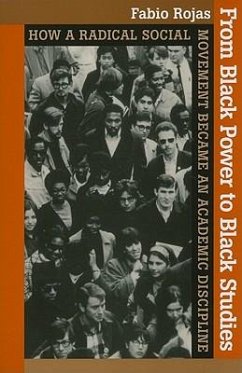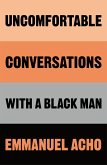The black power movement helped redefine African Americans' identity and establish a new racial consciousness in the 1960s. As an influential political force, this movement in turn spawned the academic discipline known as Black Studies. Today there are more than a hundred Black Studies degree programs in the United States, many of them located in America's elite research institutions. Fabio Rojas explores how this radical social movement evolved into a recognized academic discipline. "How does a fiery social movement adapt to institutions of higher learning? How do institutions respond to conflict, co-opt challengers, and absorb change? And how do movements cope with society's declining receptivity to reform? Fabio Rojas's book answers these questions and is a must read for activists and for scholars of African American politics and social movements."--Sidney Tarrow, Cornell University "A thoughtful and substantive contribution to the emerging new literature on the origins of Black Studies."--Left History "Historians of the civil rights movement and of American higher education will profit considerably from reading this work."--Journal of American History "A fascinating account of the development of Black Studies departments in American colleges and universities."--Administrative Science Quarterly "Carefully conceived and designed . . . Adds to the social science literature on ways in which marginalized groups mobilize to alter established organizations and institutions."--History of Education Fabio Rojas is an assistant professor of sociology at Indiana University.
Hinweis: Dieser Artikel kann nur an eine deutsche Lieferadresse ausgeliefert werden.
Hinweis: Dieser Artikel kann nur an eine deutsche Lieferadresse ausgeliefert werden.








